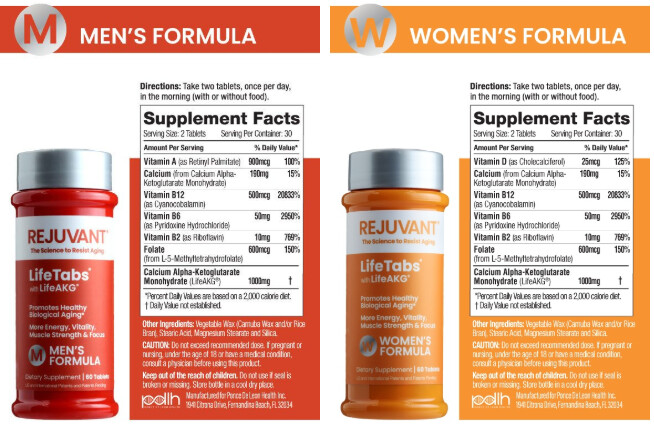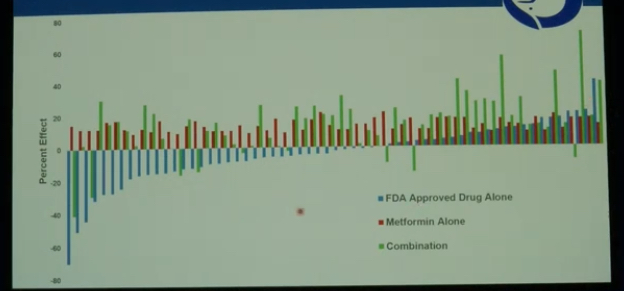KarlT
#44
Constantly trying to decrease the number of pills I take. “Potential” or “possible” benefits are often not enough for me to continue taking something.
2 Likes
adssx
#45
Is there a good way to measure taurine? You can only cure deficiencies you measure.
2 Likes
You can have a blood test to measure taurine levels.
2 Likes
adssx
#47
Yes but let’s be honest: no one tests for that  Are the test reliable? Standardized? Do we know which levels should be targeted? etc.
Are the test reliable? Standardized? Do we know which levels should be targeted? etc.
3 Likes
I’m trying to do that  and have cut out a few. Probably need to cut out another 10 LoL!
and have cut out a few. Probably need to cut out another 10 LoL!
I think one of the issues is that if any of these actually work one would not need them all. So I’m trying to get into more testing of “standard” markers and try to understand the age weighted results. My theory is that if my markers or specific markers are trending to “youthful” then my overall system is running better and I don’t need as many different supps. The trick would then be doing more measurements as the supp count is reduced to see if any marker then starts to trend in the wrong direction.
2 Likes
Start measuring - good advice in general. The issue is, that for many supplements, the claimed benefits are hard to measure, or can only be seen over a longer period of time. Take something like grape seed extract, which has been discussed on this site. Just as with a whole bunch of supplements, there are no unequivical studies showing concrete benefits in people. There are some studies in animals, small studies in humans of uncertain applicability to you, and that’s hardly unique to just a few supplements but true of almost everything discussed, including the drug that this site has in its name, rapamycin.
But even assuming that, say, there’s a generalized benefit, like “heart health”, for, say, magnesium, how do you measure that? You can measure your serum magnesium levels (although unlike calcium, that’s not a very useful measurement in blood), but how do you measure if your heart is “healthier”? Many of the speculated benefits of magnesium are from association studies showing that those who consume relatively little magnesium have poorer heart health. Does that mean that if you gobble up an extra magnesium tablet your heart will do cartwheels from joy? How do you measure that? What of all those supps or meds that purport to prevent cancer, or lower the odds - or lower your odds of neurological disease, etc.
And so on. Measue. Great in principle, but often hard in practice. That said, yes, statin or glucose lowering, or blood pressure etc., can be measured by impact on biomarkers and you hope that translates into actual impact on health. But you can’t even always assume that, because, say, niacin lowers LDL and Lp(a), but doesn’t actually seem to lower MACE, or other outcomes. You might be affecting just the biomarkers, and often at a cost of side effects.
5 Likes
I know I’ve said it before, but when Brian Kennedy — a highly respected geroscientist who codiscovered the role of mTOR in aging and has performed multiple life extension studies in mice, worms, and killifish — says
… and says it again here, then yes, any sensible person would worry about it.
In foods, the doses of bioactive compounds you’re taking are generally a small fraction of what you;re getting in a supplement: you’re not getting a pharmacological dose, not expecting a pharmacological effect, and won’t be affected if there is a tiny negative synergy on the square root of zilch.
You’d say that based on what — your intuition? I’ll take Kennedy’s report of his laboratory observations over your gut any day (no offense to your gut).
6 Likes
LukeMV
#51
Suppose what you and him say is 100% true, and we have no idea which specific combinations cancel each other out, what do you propose?
Is it best to only choose one drug or supplement and nothing else?
If we are going to operate under the idea that all these things are likely to cancel each other out, we need to be discussing actionable steps here, since most people on this forum are actively shortening their lifespans by doing more than just one thing.
It is partially my intuition based on the available evidence I’m aware of. We have evidence that the following combinations are better together:
Rapamycin + acarbose
GLP1’s + SGLT2’s
NAC + glycine
Blood pressure combinations (Like an ARB + CCB/beta blocker)
Lithium + trametinib + Rapamycin
rapamycin, rifampicin and allantoin
Statin, PDE5, and TRT (reduced all cause mortality by 81% in 44,000 person study in type 2 diabetics)
4 Likes
The answer partially is to work on a mechanistic hypothesis and also to test a lot whilst varying inputs.
2 Likes
Even if you look at our medical profession, you can see doctors giving 10-15 medications to patients with cardiovascular issues, diabetes, etc… I doubt they would be doing this if the effects weren’t additive.
I think Dr. Kennedy is worried about supplements and meds that may hit the same pathway too hard or cancel each other out as one may activate and the other may deactivate a specific target. MTOR is an example where several good interventions target it and you may be wasting interventions by taking multiple MTOR targeting drugs. For example Urolithin A and Rapamycin.
I think it’s beneficial to take multiple interventions to target specific goals.
Here are the distinct goals that I believe should be targeted.
- Deficiencies - supplement whatever you are deficient in.
- Cardiovascular - lower lipids through multiple interventions.
- Metabolism - keep your glucose under control.
- MTOR/AMPK - Rapamycin and others.
- ROS - Using Astaxanthin, Lutein, Zeaxanthin and others to protect from damage.
- Blood pressure - Keep in optimal range.
And I’m sure there are others. As you can see this is already 10-20 interventions that impact different pathways and each is valuable in its own way.
Our bodies need the right amount of many different components to live long.
5 Likes
Remember, Brian Kennedy, in his recent presentation himself talked about the polypill-taking patients vs optimal biomarker subjects, and the polypill folks came out ahead. Now, it might mean that “optimal biomarkers” ranges need to be tightened up, but it is also quite clear that the polypill is highly effective. And a polypill is the very definition of polypharmacy, or taking of multiple meds. So that right there tells us that carefully chosen meds can work well together, or at least net out to a positive end point. All metabolic factors, such as blood glucose, blood pressure, lipid panel which can be addressed by a whole bunch of medications - each of these can have 1-5 meds. For lipids, you might take a statin, bempedoic acid, ezetemibe, PCSK9i. For blood pressure, you might take 1-3 different agents at the same time. Blood sugar control also 1-4 agents. Potentially, your polypill might have as many as 10 different drugs or more - and if the results are superlative, well, the proof is in the pudding.
4 Likes
mccoy
#55
I remember where Kennedy’s observations came from. He was experimenting on mice with Ponce De Leon, the company that produces Rejuvant, Ca-AKG plus vitamins according to sex. Kennedy was a main consultant in that project.
He says it during one podcast (sorry but I listened to many, cannot retrieve it now). In the preliminary phase, while studying single molecules and combinations, they observed that a few supplements were synergistic (additive effect), other canceled each other, a few had a synergy with negative outcomes. In mice.
He did not specify the combinations though. Maybe he couldn’t.
2 Likes
mccoy
#56
From the above Ponce De Leon experiments, this is the only example we know of ostensible additive and beneficial effects observed in mice. In humans there have been limited studies. AKG is the core molecule, Ca is used to counteract acidity, A and D vitamins respectively in men and women, B vitamins in both.
This Rejuvant is a commercially pretty expensive combination of supplements. I have tried cheaper Arginine-AKG, standalone, also known by bodybuilders.
The presumed longevity effects of Ca-AKG are maybe related to the benefits against frailty.

1 Like
AKG is a substrate for demethylation of DNA. (TET enzymes)
1 Like
You’d bet your life on this guess?
[quote=“DeStrider, post:53, topic:17326”] Our bodies need the right amount of many different components to live long.
[/quote]
This is true but how to intervene on a biological system that is so complex no one understands what it does or even what it is trying to do?
Here is how I think about it in an attempt to not fool myself with wishful thinking:
I exercise and sleep and eat food and get sunshine to use a billion years of programming to operate the system. Of course I am careful to send the right adaptive signals to get what I want. If you sit on the couch in air conditioning with plenty of food all day, the body will adapt to being efficient in that environment.
In addition, it’s wonderful and terrible that we live in an unnatural world that is certainly contrary to our evolutionary environment … so as much as possible I stay away from pollution and plastics and nnEMF, and try to sustain a natural circadian rhythm.
But why add to the smog of untargeted interventions with overly targeted interventions one after another layered on top of one another? I think drugs are for solving acute, short term problems or surviving with biological damages that cannot be healed. Supplements are unregulated drugs. I treat rapamycin as the exception to the rule, not as the rule. I wouldn’t do two rapamycin-like Hail Marys at the same time.
But maybe that’s just me being too conservative.
Ora Biomedical (I think) did a study adding metformin to 1 other drug from a set of FDA approved drugs to see if the benefits would be additive or not. The results were all over the place: additive, more than additive, negative…they concluded you couldn’t guess how drugs would combine. Remember this chart?

3 Likes
That chart actually says a lot. If you exclude the FDA drugs with a negative effect (blue bar below zero), then there are only three combinations that have a net negative effect on lifespan. Everything else seems to have a positive or at least neutral effect. I believe that by optimizing different pathways with a few well chosen interventions you can have a more optimal result.
4 Likes
vongehr
#60
Wait what? It seems just normalised to metformin (always positive). Where is this graph from, I want to see it in context.
@DeStrider Sure, that’s one way to look at it. Maybe your odds will be good for guessing which combinations are the good ones for you. Now combine 10 or 20 more drugs. Now 50. With the proper amount of fear, such guessing takes a lot of courage.
1 Like
It’s been discussed on this forum. I think it came out around mid 2024. I’ll hunt for it later if you can’t find it. I have to run for a podcast recording.
vongehr
#63
Found it, understand it now, agree with @DeStrider, though the graph perhaps mostly shows how variable the metformin control outcome alone is, and therefore the huge error on any other single peak.
2 Likes